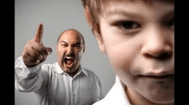Anyone can become angry—that is easy; but to become angry with the right person, and to the right degree, and at the right time, and for the right purpose, and in the right way—that is not within everyone’s power and is not easy. —Aristotle
Blame permeates our social world. The ubiquity of blame in human affairs likely explains the robust interest in the topic shown from ancient times (Aristotle, BCE/2012; Buddha, BCE/2003; Deuteronomy 25: 1-2), through the influential European Enlightenment scholars (Kant, 1785; Smith, 1759), up to our modern interdisciplinary focus on blame within  the
the  disciplines of criminal justice (Cullen & Gilbert, 2012), philosophy (Coates & Tognazzini, 2012), organizational behavior (Edmondson, 2018), child development (Baumrind, 2013), close relationships (Gottman, 2015), and social psychology (Malle, Guglielmo, & Monroe, 2014). Blaming arguably reflects a basic human instinct (Van Prooijen, 2018).
disciplines of criminal justice (Cullen & Gilbert, 2012), philosophy (Coates & Tognazzini, 2012), organizational behavior (Edmondson, 2018), child development (Baumrind, 2013), close relationships (Gottman, 2015), and social psychology (Malle, Guglielmo, & Monroe, 2014). Blaming arguably reflects a basic human instinct (Van Prooijen, 2018).
Blame is a double-edged sword. On the one hand, it can be constructive, such as when a parent firmly-yet-warmly communicates that a child’s behavior is unacceptable and the child learns to make better choices, or when a disadvantaged group gets angry about societal injustice and engages in non-violent collective action to encourage justice. On the other hand, blame can be destructive, such as when a parent furiously berates a child for bad behavior and the child develops a sense of shame and a hostile attitude toward the world, or when a disadvantaged group begins to hate a dominant group and initiates a campaign of wanton violence.
We think it is futile to ask whether, on balance, blame is mostly constructive or mostly destructive. Our perspective is that blame intensity is crucial for understanding when blame will be relatively constructive or relatively destructive. Specifically, we assume that excessive blame—harsh blame that includes elements of contempt or hatred or malice—is what creates negative impacts.
blame will be relatively constructive or relatively destructive. Specifically, we assume that excessive blame—harsh blame that includes elements of contempt or hatred or malice—is what creates negative impacts.
 In line with this perspective, much of our work in the Blame Lab examines how harsh, punitive blame—or over-blaming—can be tempered into blame that is wiser and more constructive. As we explore this issue, we aim to make contributions in the areas of the psychology of blame and punishment, the psychology of free will beliefs, intergroup attitudes, moral emotions, attribution theory, and social justice. We also pursue an interdisciplinary angle by connecting our work to ideas from moral philosophy.
In line with this perspective, much of our work in the Blame Lab examines how harsh, punitive blame—or over-blaming—can be tempered into blame that is wiser and more constructive. As we explore this issue, we aim to make contributions in the areas of the psychology of blame and punishment, the psychology of free will beliefs, intergroup attitudes, moral emotions, attribution theory, and social justice. We also pursue an interdisciplinary angle by connecting our work to ideas from moral philosophy.


***Additional details about our various research projects are available on the Research page of this site.